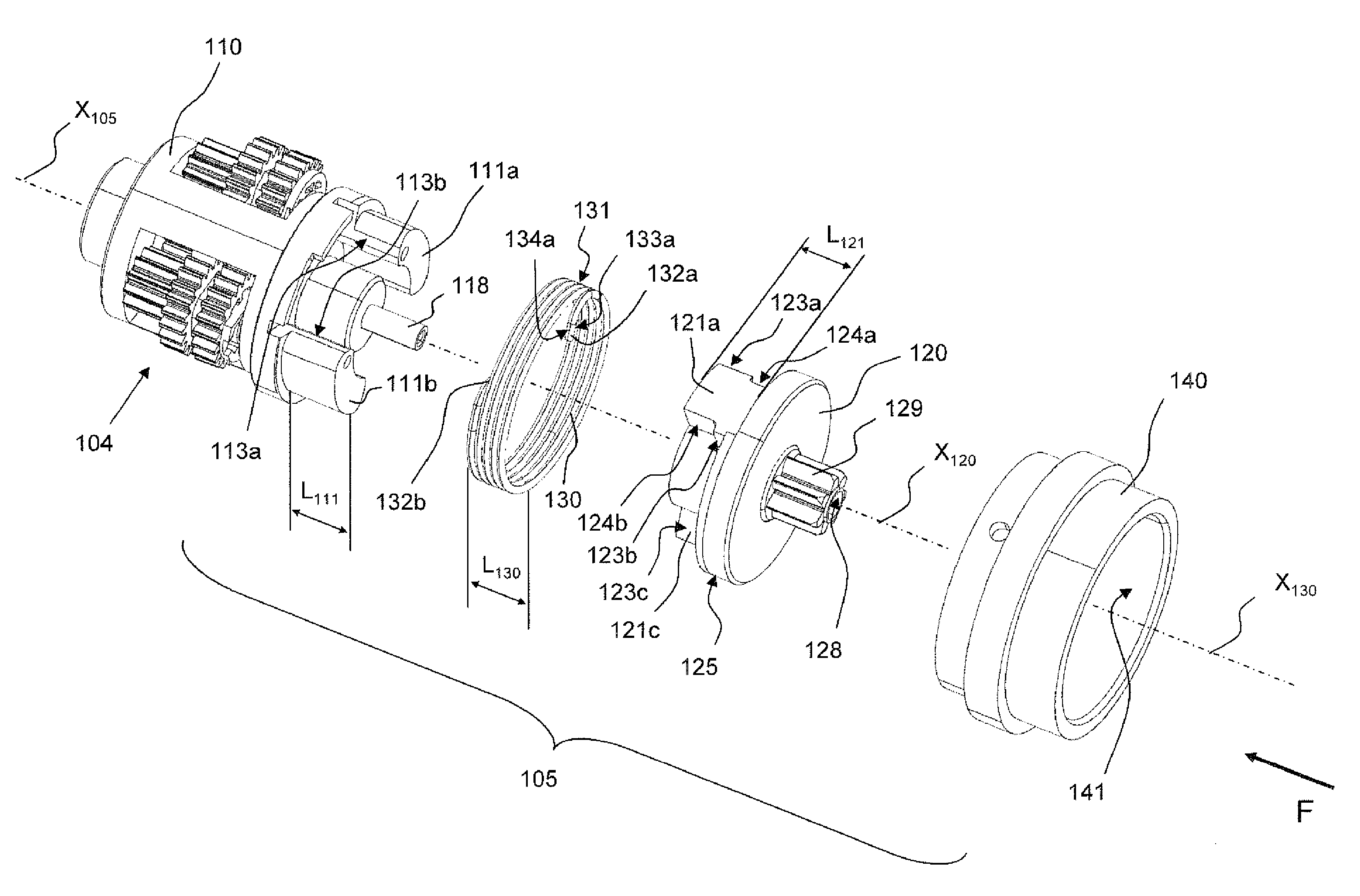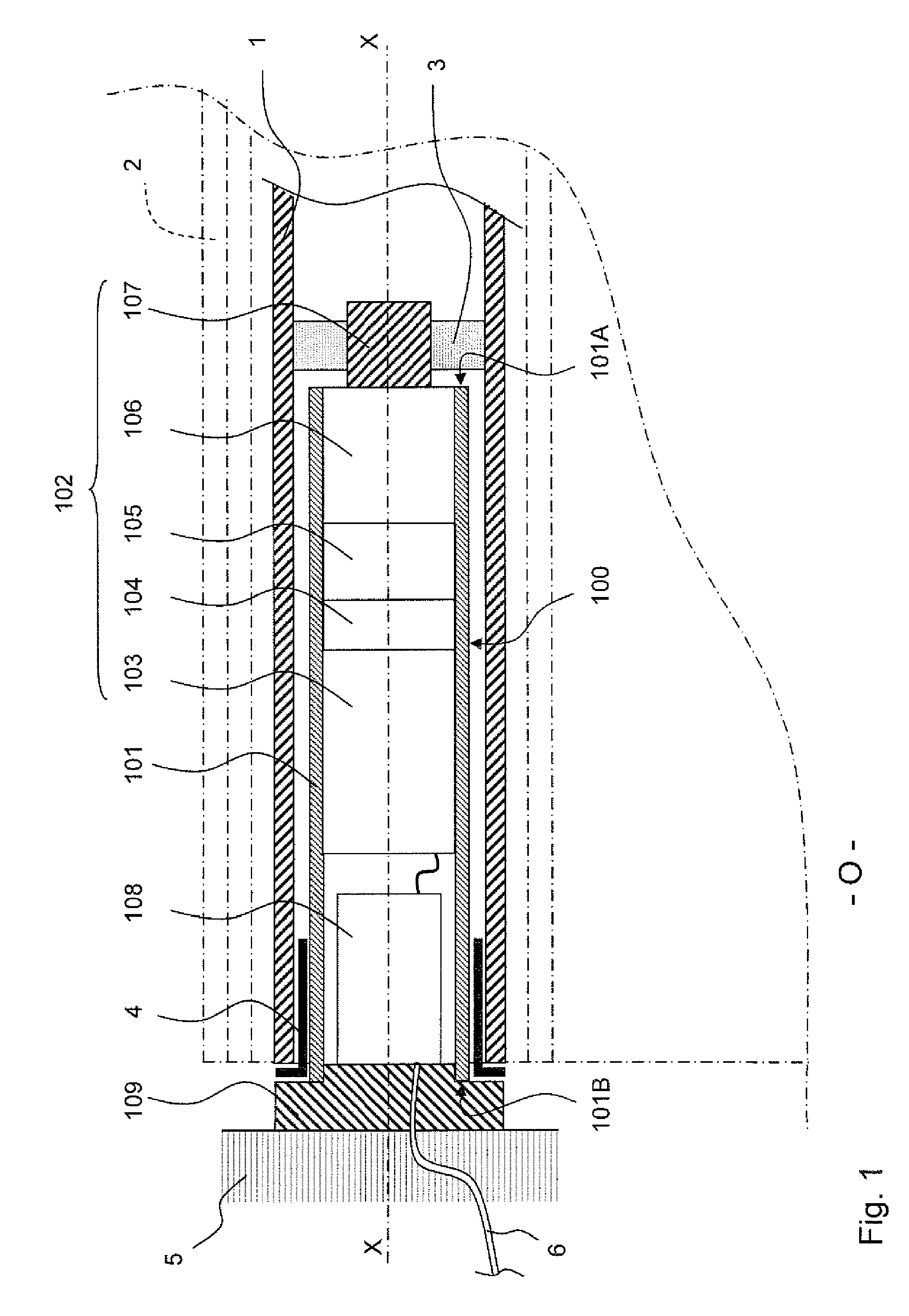Electric actuator for driving a home-automation screen
a technology of electric actuator and homeautomation, which is applied in the direction of electrical apparatus, dynamo-electric machines, building components, etc., can solve the problems of secondary braking torque, drawbacks of conventional spring brake design as described in the preceding example, and apply secondary braking torque, so as to increase the contact force
- Summary
- Abstract
- Description
- Claims
- Application Information
AI Technical Summary
Benefits of technology
Problems solved by technology
Method used
Image
Examples
first embodiment
[0042]FIGS. 2 to 4 more particularly show the structure of the spring brake 105 in the invention. As shown in FIG. 1, a rotor of the motor 103 drives an epicyclic gear train of the first gearbox stage 104. The cylinder 110 of the epicyclic train that carries three planet gears also forms an inlet part of the brake 105. The brake 105 includes a helical spring 130 having its turns centered on an axis X130 that coincides with the axis X-X when the brake 105 is in place, as shown in FIG. 1. Said spring is mounted in tight-fitting manner inside a bore 141 in a friction part 140. In other words, the outside envelope 131 of the spring 130, which envelope is defined by the outside generator lines of its turns, bears against the radial surface of the bore 141, thereby tending to secure together the spring 130 and the part 140 by friction.
[0043]Each end of the spring 130 forms a tab 132a, 132b extending radially towards the axis X130 and towards the inside of the spring, from its turns.
[0044]...
second embodiment
[0070]X-X when the brake 105 is in place as shown in FIG. 1. The axes X230 and X-X coincide with the central axis X105 of the brake 105 when an actuator 100 incorporating the brake 105 of this second embodiment is in the assembled configuration.
[0071]The spring 230 is mounted in tight-fitting manner inside a bore 241 in a friction part 240. In other words, the outside envelope 231 of the spring 230, which envelope is defined by the outside generator lines of its turns, bears against the radial surface of the bore 241, thereby tending to secure together the spring 230 and the part 240 by friction.
[0072]Each end of the spring 230 forms a tab 232a, 232b extending radially towards the axis X230 and towards the inside the spring, from its turns.
[0073]The inlet part 210 is provided with a protuberance or “tooth”211a that fits into the helical spring 230, between the tabs 232a and 232b. Said tooth 211a has two faces 213a, 213b suitable for being in contact respectively with a surface 233a ...
PUM
 Login to View More
Login to View More Abstract
Description
Claims
Application Information
 Login to View More
Login to View More - R&D
- Intellectual Property
- Life Sciences
- Materials
- Tech Scout
- Unparalleled Data Quality
- Higher Quality Content
- 60% Fewer Hallucinations
Browse by: Latest US Patents, China's latest patents, Technical Efficacy Thesaurus, Application Domain, Technology Topic, Popular Technical Reports.
© 2025 PatSnap. All rights reserved.Legal|Privacy policy|Modern Slavery Act Transparency Statement|Sitemap|About US| Contact US: help@patsnap.com



